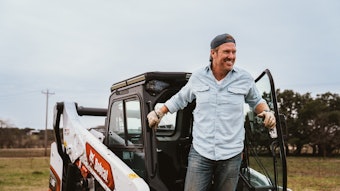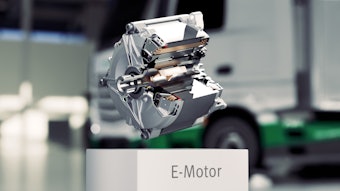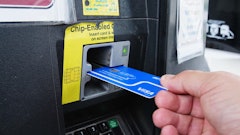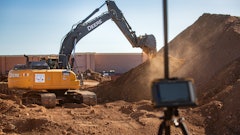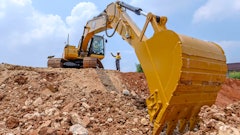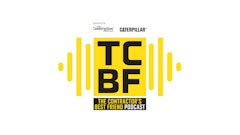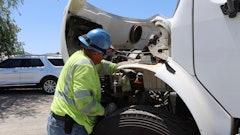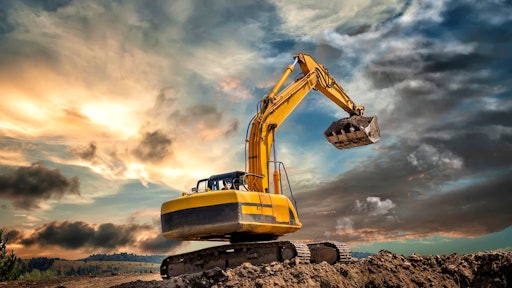
Most companies will buy used equipment at one time or another. Whether it’s machinery, furniture and fixtures, vehicles, heavy equipment, or anything else, the used equipment market is strong, especially with ongoing supply chain disruptions.
But with all used equipment purchases, companies should be satisfied that past liens have been accounted for. And it’s not as easy as it first appears.
Imagine this scenario: You’re a construction company looking to buy a used excavator. You find a great deal on one that another company is selling. You go look at it, and it’s perfect for your needs. Everything looks fine - the selling company has owned it for six years, they paid off the loan, etc. You go ahead and buy it.
Six months later, you are contacted by the seller’s bank. It seems the seller has defaulted on another loan they took out two years ago. And written into that unrelated loan was a blanket lien, meaning all of the selling company’s assets at the time were part of it, including the excavator you had since purchased.
In short, the bank is claiming ownership, stating it wasn’t allowed to be sold in the first place. You call your lawyer, and they tell you that this is true – the bank legally owns the excavator and can repossess it from you.
This means you can lose the excavator you purchased, and even worse, also forfeit the money you paid for it (unless you think the loan-defaulting seller will reimburse you. I wouldn’t count on that.)
The previous example is admittedly rare, but it is possible when buying used equipment, especially when purchasing from a private seller and not an authorized dealer. As an equipment financing company, we’ve seen this happen several times, so it is something that buyers should be aware of.
The Used Equipment Lien Peril
Every used equipment buyer should be mindful of whether the equipment has any liens against it. This is typically done with a UCC search, which usually turns up most liens (please note the use of the words “usually” and “most” there).
Now, who conducts this UCC search? It depends. If you are buying from an authorized dealer or reseller, they likely did this when acquiring the equipment for resale. If you are financing the used equipment, your lender may perform one. And a forward-thinking seller may have run one to prove a clean title. And if none of these have happened, you should absolutely perform one yourself.
Does a UCC Search Guarantee a Clean Title?
Nope. Nothing does. There is nothing that can 100% guarantee a lien-free title on any piece of used equipment. Please keep this in mind.
There are several reasons why a guarantee is impossible. One is paper trails on used equipment, especially if there were several owners, are hard to follow. Another reason is the high number of variables in a UCC search – the geographic locale searched, company names being similar, a clerk hand-entering a long serial number… there’s plenty of opportunity for misreads and mistakes.
But the biggest reason is blanket liens.
Let’s Discuss Blanket Liens
A blanket lien is when a lender puts a lien on every asset the borrowing company owns (this clause is very common on all business loans through a bank). For example, if a company borrows money to buy a new vehicle, all its assets, even those they paid off years ago, are now covered by a lien. And this can happen with every loan – it’s not uncommon for assets to have two or three blanket liens on them.
Here’s where it gets troublesome: anything with a blanket lien on it technically cannot be sold without the bank’s permission. The trouble here is the blanket lien is always buried in the fine print, so it tends to become out of sight/out of mind (e.g., “oh, I’ve owned that machine free and clear for years. There’s no lien on it.”)
Note: If your company has an open bank loan, all of your company’s tangible assets likely have a lien on them. Were you aware of that? Don’t worry if you’re not; most business owners aren’t.
Blanket liens can go back to an equipment’s previous owners too, but they are still just as valid. And since they only crop up when there’s a default, they can remain forgotten for a long time.
How Can Companies Better Protect Themselves?
There are steps a business can take to better protect themselves against accidentally buying used equipment that has a lien on it.
The easiest is to buy from an authorized reseller/dealer. This typically alleviates most lien issues, as most authorized dealers will conduct a UCC search before acquiring equipment. In addition, most authorized dealers will usually stand behind their claim that the equipment’s title is clean (make sure you ask about this, though).
But ok, we know buying from a dealer isn’t always feasible. There are countless pieces of used business equipment sold by non-dealer private sellers. So what to do in this case?
The first thing is to make sure a UCC search is done, and if needs be, conduct it yourself (it’s for your protection, after all).
The second is to have all paperwork for the equipment. This includes bills of sale, payoff letters, etc. If possible, make sure the paper trail goes back to the original purchase from the manufacturer or dealer.
Buying used equipment from the original owner makes everything easier, as the paper trail gets more challenging to complete with each previous owner (honestly, I would not buy any used equipment with an incomplete paper trail).
The third is simply trust. You’re going to have to trust the seller.
As stated earlier, used equipment sales are enormously popular. Better still, an extremely high percentage of them have no lien issues. Trustworthy sellers, complete UCC searches, and unbroken paper trails can go a long way to lessen any lien issues.
In the end, however, always remember that the buyer is the responsible party. They are the ones that will lose the equipment if there is an issue, and also lose the money they paid.




